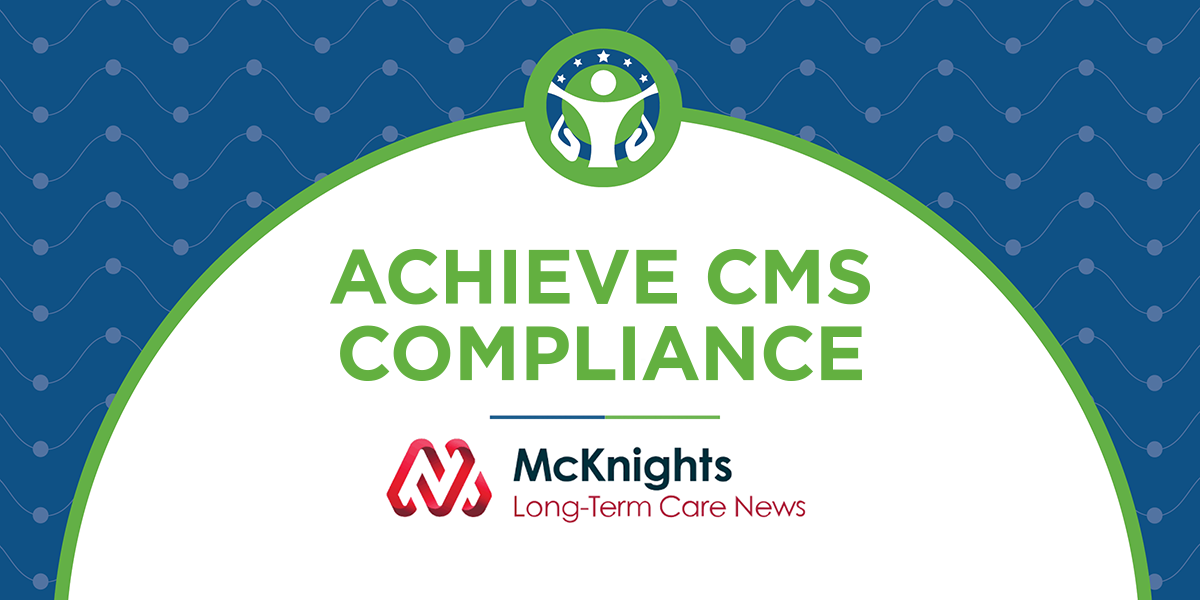How to Achieve CMS Behavioral Health Compliance

In longterm care facilities, CMS compliance depends on ensuring diagnostic accuracy and avoiding unnecessary use of antipsychotics and other psychotropic drugs. As practitioners are faced with complex dementia-related symptoms, we need stronger clinical care models to ensure better outcomes.
Dr. Steven Posar, Founder and CEO of GuideStar Eldercare, explained a pioneering clinical care paradigm for achieving compliance in a recent webinar hosted by McKnight’s Long-Term Care News: Comprehensive behavioral health compliance: Are you prepared?
As lifespans increase and medicine has developed solutions for maladies affecting most organ systems, we now see the brain as a last frontier. Said Dr. Posar of dementia and other brain diseases, “We’re seeing a tsunami of disorders we didn’t know anything about.” As a result, “longterm care exists on a clinical island,” he said. “Our ability to impact brain health is in its infancy.”
Many forms of dementia
Even the term, Alzheimer’s and Related Dementias (ADRD) “doesn’t do justice” to the clinical realities in long-term care today, said Posar, as researchers continue to unearth details of the underlying pathologies. We now know enough about many forms of dementia to fine-tune a diagnosis to one or multiple neuropathologies, such as Alzheimer’s disease, vascular dementia, mixed dementia, Parkinson’s disease dementia, Lewy body dementia, fronto-temporal dementia, or LATE dementia. “Science has now reached the point where each of these diagnoses can be dealt with individually,” he said.
Only about 5% of nursing home residents have a serious mental illness, yet the basic care model is grounded in psychiatry. In fact, explained Dr. Posar, this is why it’s been so challenging for the industry to reduce antipsychotic usage rates, which are at about 21%.
Neurology first
Armed with a growing knowledge base, we can start with neurology instead, said Posar, forging effective protocols for addressing the prevalent symptoms of BPSD that do not rely on using antipsychotics for the majority of patients who do not have schizophrenia, or anticonvulsants for patients who do not have seizure disorders.
This approach needs to happen in consultation with primary care and in combination with consultative pharmacology, he explained. As part of this diagnostic rigor, psychiatry/psychology teams step in to assess and treat remaining symptoms. Adding neurology expertise to the multi-disciplinary team can lead to more accurate diagnoses of primary conditions, as well as complex secondary conditions, he explained. For example, neurologic evaluation sometimes reveals the presence of partial complex epilepsy. In this condition, a seizure may manifest as behaviors. (For more examples, access the complete webinar.)
Dr. Posar also explained what’s behind the distressing REM behavioral sleep disturbances often seen in individuals who have Lewy Body dementia. The solution? “Wake them up,” he said; they are sleepwalking. Furthermore, “there is a specific pharmacological cocktail” that is effective for this diagnosis, he explained. Accurate diagnosis opens the door to effective treatment.
Quality-focused outcomes
Investing in an accurate diagnostic process pays off, said Dr. Posar. Applying this new paradigm, the GuideStar team has demonstrated measurable improvements in neurobehavioral health and functional symptoms. Using CMS data and facility star ratings, the team has been able to achieve virtually 100% CMS compliance with standards for diagnostic accuracy, as well as with anticonvulsant utilization standards.
The team’s published research demonstrates a 68% reduction in antipsychotic utilization. In addition, the model has demonstrated a major reduction in psychiatric inpatient admissions and visits to Emergency Departments for neurobehavioral symptoms, he reported.
Pharmacologic insights
Dr. Posar outlined some effective medication options for mitigating BPSD, such as galantamine + memantine + an SSRI. He also gave examples of medications that can be used for diagnosed neurological conditions. Each case needs to be treated uniquely, he advised. Certain medications, he emphasized, need to be avoided.
Hear more details about this clinical paradigm for dementia care, and discover the steps to achieving CMS compliance in the full webinar (free, registration required).
